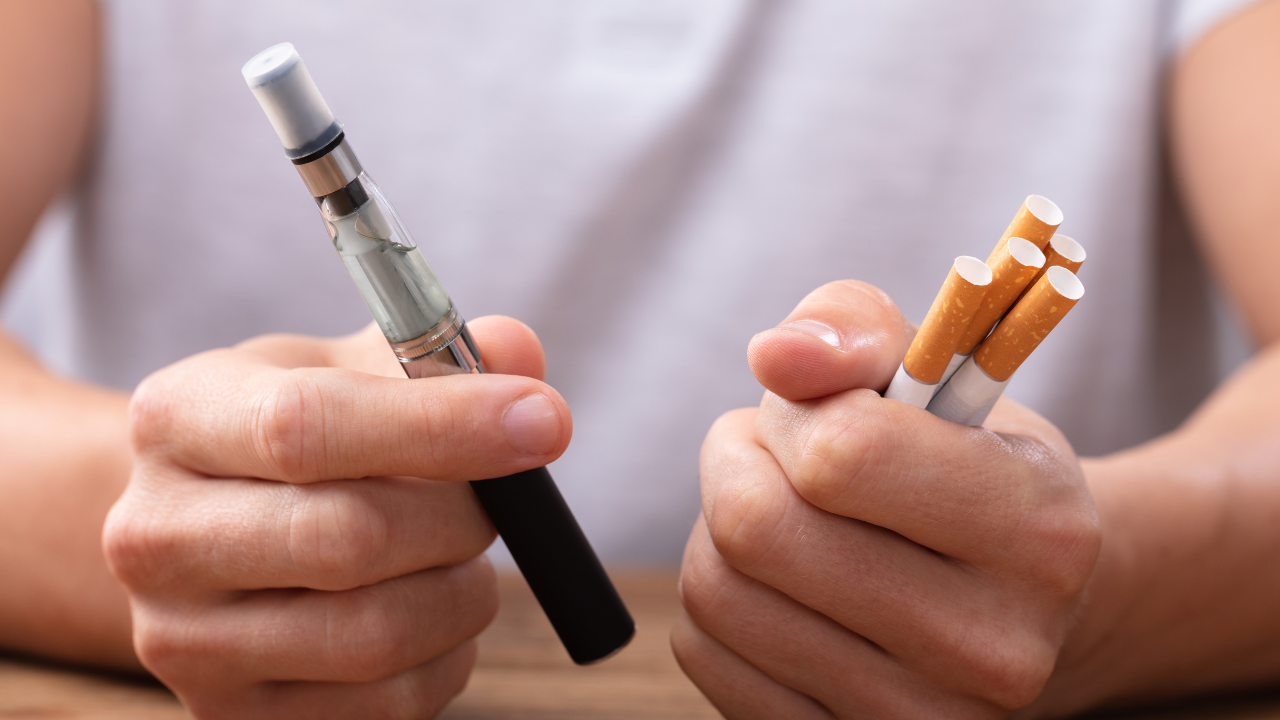
File photo of vape and cigarettes
SUBIC BAY, Zambales – Only 20 percent of individuals enrolled in the government’s smoking cessation program in 2023 were able to fully quit smoking or vaping, a doctor from the Lung Center of the Philippines (LCP) revealed on Friday.
In a media conference, Dr. Jessica Catalan-Legarda, from LCP’s pulmonology department, said they received 600 inquiry calls for the program last year.
READ: Health expert: Rise in fatal illnesses among young vape users seen
One hundred forty-four of them underwent counseling for ending tobacco use, but out of this, only 29 successfully quit.
Catalan-Legarda said that those who did not continue with the program voluntarily dropped out, to which the LCP responded with contact tracing and follow-up calls.
“Itong voluntary droppers po usually bumabalik din sa pagyoyosi at pag vape, and based nga po sa mga studies, it will take around seven to eight times to attempt na makapag-quit para successful na makapag quit ang isang smoker or isang vaper,” she said.
(These voluntary quitters usually go back to smoking and vaping, and based on studies, it takes around seven to eight attempts to successfully quit smoking or vaping.)
When asked what “common denominator” the successful quitters had, she said that it was their age and educational attainment.
“Ang common denominator nila would be young age. So among successful quitters, ang age group po nila would be 22 to 44 years of age, and of course, ‘yung high ‘yung educational background po,” she said.
(The common denominator among them would be young age. So among successful quitters, their age group would be 22 to 44 years of age and, of course, those with a high educational background.)
READ: DOH cites lack of healthcare workers as major roadblock to health goals
To enroll in the smoking cessation program, Catalan-Legarda said that a smoker must consult with a doctor.
If the doctor deems that he or she would not be able to assist the patient in quitting, then the patient can be referred to the program via the quitline hotline (1558).
Upon calling, the patient will be assessed by quitline coaches on the type of tobacco product he or she uses and the time spent using it.
Regular counseling, spanning eight to 12 weeks, will follow, Catalan-Legarda said.
Nicotine replacement therapy, on the other hand, will be conducted for those who need it.